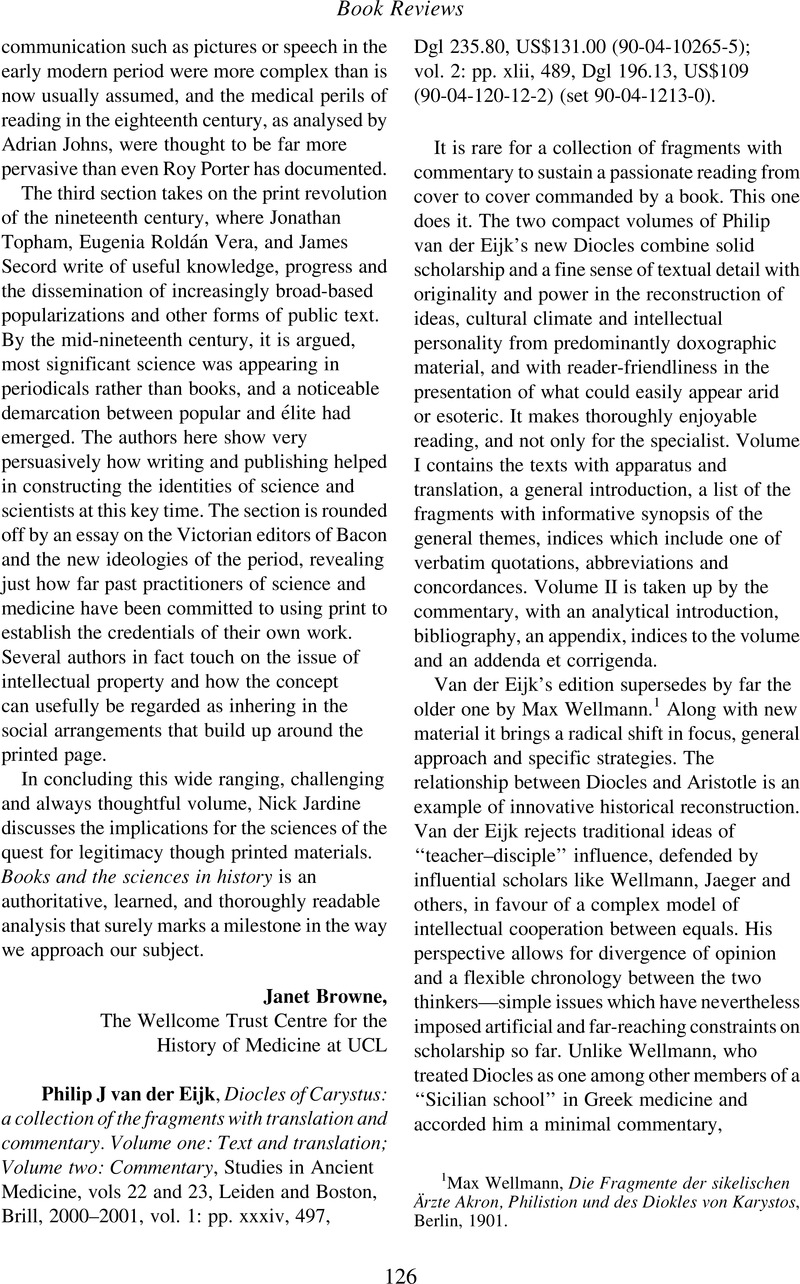No CrossRef data available.
Article contents
Philip J van der Eijk, Diocles of Carystus: a collection of the fragments with translation and commentary. Volume one: Text and translation; Volume two: Commentary, Studies in Ancient Medicine, vols 22 and 23, Leiden and Boston, Brill, 2000–2001vol. 1: pp. xxxiv, 497, Dgl 235.80, US$131.00 (90-04-10265-5); vol. 2: pp. xlii, 489, Dgl 196.13, US$109 (90-04-120-12-2) (set 90-04-1213-0).
Published online by Cambridge University Press: 26 July 2012
Abstract

- Type
- Book Reviews
- Information
- Copyright
- Copyright © The Author(s) 2005. Published by Cambridge University Press
References
1Max Wellmann, Die Fragmente der sikelischen Ärzte Akron, Philistion und des Diokles von Karystos, Berlin, 1901.
2Theory of an “elaborate refutation” of Archidamus by Diocles, II, p. 364. See also on Frr 51a–d (anomalia general cause of disease) or on Fr 40, which is guided by a systematic demarcation between two main hermeneutic tasks: finding out which parts purport to reproduce Diocles and evaluating the reliability of what is attributed to him. Van der Eijk shows, very plausibly, how the doxographer has fabricated a “refutation” of Herophilus and other post-Dioclean authorities, which he attributes to Diocles. But I doubt that the refutation draws on “ingredients which, each individually, derive from Diocles’ thought” (pp. 84–5). General beliefs in the existence of four humours or pneuma are too vague; what would be needed is some specific view on them, especially on pneuma in relation to seed theory. The only possible Dioclean “ingredient” confirmed by another source, the view that seed originates in the brain and spinal marrow (cf Frr 41a and b), is annulled by the fact that the Anonymous also attributes to Diocles the rival view that seed originates in nutriment (pp. 30–31).




